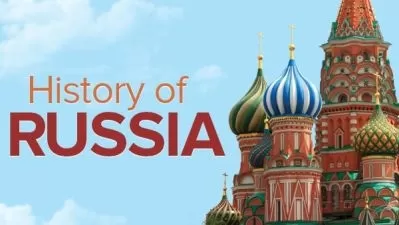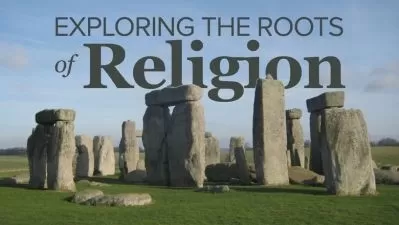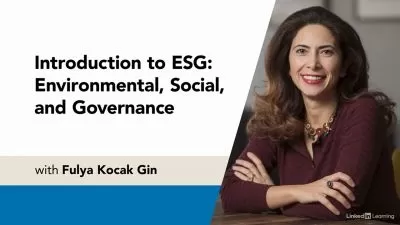Understanding the Science for Tomorrow: Myth and Reality
Jeffrey C. Grossman
11:54:11
Description
Science and technology are, without a doubt, two forces that will change the way you live your life in the coming months, years, and decades. Nanotechnology, quantum computing, genetic engineering; these and other fascinating fields have the power to revolutionize almost every aspect of existence, including how you eat and drink, how you communicate, how you travel, how you learn—even how long you live.
And in recent decades, these forces have evolved and developed at a lightning-fast pace. So fast, in fact, that the future of science and technology couldn't be any more exciting than it is now, as scientists are on the cusp of breakthroughs, including
- new energy sources such as biofuels, solar photovoltaics, and nuclear fusion;
- smaller, more powerful computers that can tap into the secrets of artificial intelligence and operate advanced robotic systems;
- tools and equipment for making water safer to drink and food easier to grow, package, and preserve; and
- new devices for speeding up the ways we travel from place to place and the ways we communicate and share information with one another.
These and other scientific breakthroughs of tomorrow will do more than enhance and improve everyday life. They also will help solve some of our world's most pressing crises and dilemmas, including food and water shortages, clean and reusable energy needs, detection and curing of life-threatening illnesses, and so much more. And while some of these promises are surrounded by hype and myth, the truths about them are more startling—and more important—than you ever imagined.
Explore the many possibilities of what your future may look like with Understanding the Science for Tomorrow: Myth and Reality, a scientifically accurate and enlightening survey of today's most advanced research in fields such as engineering, biology, chemistry, and theoretical physics. These 24 lectures by research scientist and Professor Jeffrey C. Grossman of the Massachusetts Institute of Technology delve into the genuine science of today's—and tomorrow's—hottest issues in an accessible manner that helps you grasp these sometimes esoteric topics. They are designed for anyone curious about the current state of science and technology and where it is likely to be heading in the near future.
Investigate a Range of Real-World Applications
"For millennia, science has given us knowledge of how the world works that has led, in turn, to more magnificent discoveries and extraordinary innovation,"says Professor Grossman. "And yet rarely, if ever, has there existed a role for science, a scale for science, and an absolute need for science as there exists today."
In Understanding the Science for Tomorrow, you'll see firsthand how recent developments in science and technology can potentially fulfill this need in a range of modern-day, real-world areas.
- Transportation: The key challenge of today's transportation lies in improving overall efficiency without limiting range and, possibly, speed. You'll discover how scientists are developing ways to face and overcome this challenge by exploring the science behind hybrid and electric cars, mag-lev trains, artificial fuels, and more.
- Computing: Computers have literally revolutionized the world and are primed to do so even more in the coming years. You'll make sense of everything from optical computing, in which information travels as light instead of electrons, to quantum computing, which would allow us to tackle problems that today's computers are unable to even formulate.
- Medicine: Nanotechnology, which involves the purposeful engineering of matter at scales of less than 100 nanometers, has untold ramifications for the medical field. You'll see how recent and future developments can change the ways we heal wounds, detect diseases, deliver drugs to specific areas of the body, and even show us what goes on inside cells.
- Energy: Today, most of our energy comes from coal, gas, and oil. But this may not be the case in the near future. You'll investigate ways in which materials such as the sun, hydrogen, electricity, and even crops such as sugar and corn are poised to radically alter the way we make, use, and store energy.
In discussing these and other subjects, Professor Grossman takes care to explain the basic science behind them in terms that are easy to understand. He also shows the intricate connections between advancements in one field (such as energy) and their impact in a host of other areas (such as transportation, food production, and computing). You'll come to see science as a giant, interconnected web supporting not just one area of your everyday life but all of them.
Get Intriguing Sneak Peeks at New Scientific Developments
Understanding the Science for Tomorrow is filled with intriguing sneak peeks at the latest developments and technologies in a range of scientific fields. With his characteristic insight and contagious excitement, Professor Grossman reveals what you can possibly expect from these and other marvels.
- Robotics: While still in the research and development phase, some primitive molecular machines (nanorobots) have been built and tested. The first useful applications of these machines might be in medicine, where they can be used to identify and destroy cancer cells, or for detecting the concentration of toxic chemicals in the environment.
- Genetic engineering: There is the potential for great changes in biology and medicine based on genetic engineering. In the near future, it may be possible for us to make DNA sequencing available and affordable, leading to personalized medicine in which treatment can be customized to each individual's specific genome.
- Biofuels: While biofuels based on food crops are not well-suited for fueling the entire world because they threaten food supplies, second- and third-generation biofuels get around this dilemma by using biomass from crops not meant to be used as food or even waste from the food industry.
In discussing these and other eye-opening topics, Professor Grossman always makes a point to emphasize fact and truth over fiction and hype. As startling as these possibilities for the future may be, there are still plenty of challenges that scientists are facing, as well as tradeoffs that need to be considered from the development and adoption of these scientific advancements.
Discover How Science and Technology Are Redefining Your World
In addition to showcasing his ability to sidestep media buzz and present only the reality of each of these scientific fields while peering responsibly into the future, Professor Grossman brings his celebrated teaching style to each of these 24 engaging and densely illustrated lectures. An expert in fields from computational science and energy storage to nanotechnology and thermodynamics, he's skilled at bringing such a broad range of scientific disciplines into a single, concise, and comprehensive package. And his research work at MIT finds him every day on the frontier of devising and developing new technologies for addressing the scientific dilemmas of today and tomorrow.
By the final lecture of Understanding the Science for Tomorrow, you'll have a stronger sense of some important fundamental scientific principles being used right this moment to innovate your life. You'll also find yourself filled with a sense of excitement and wonder for both how, and how quickly, science and technology are working to make your world a better place.
More details
User Reviews
Rating
Jeffrey C. Grossman
Instructor's Courses
The Great Courses
View courses The Great Courses- language english
- Training sessions 24
- duration 11:54:11
- English subtitles has
- Release Date 2023/04/27





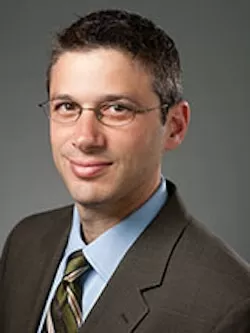
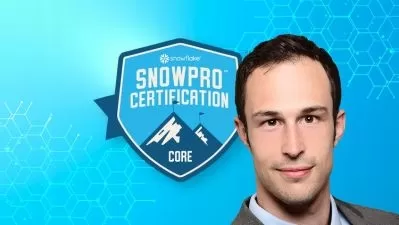

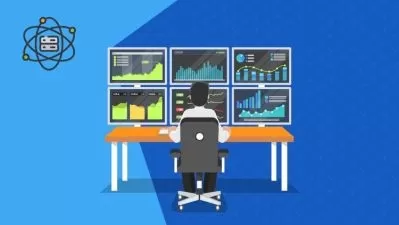

![Data Science Methods and Algorithms [2024]](https://traininghub.ir/image/course_pic/39367-x225.webp)



